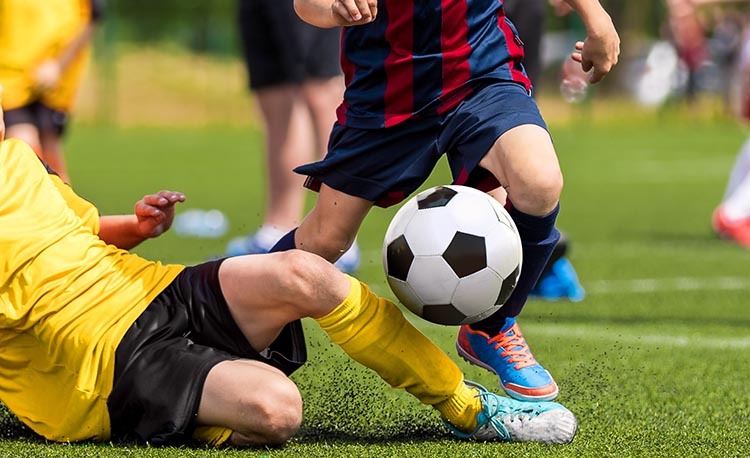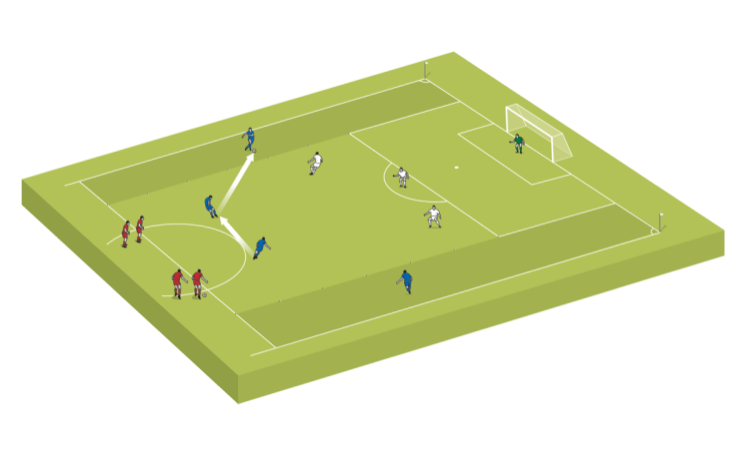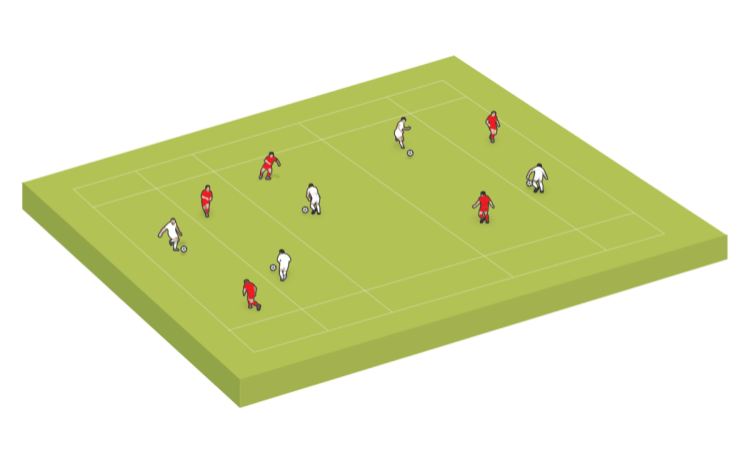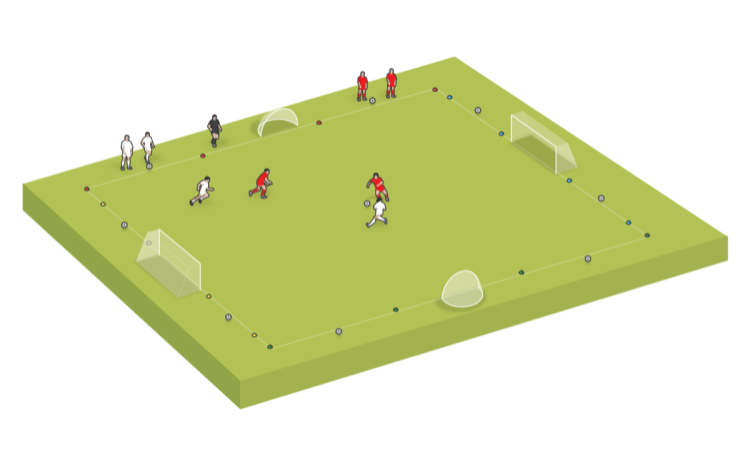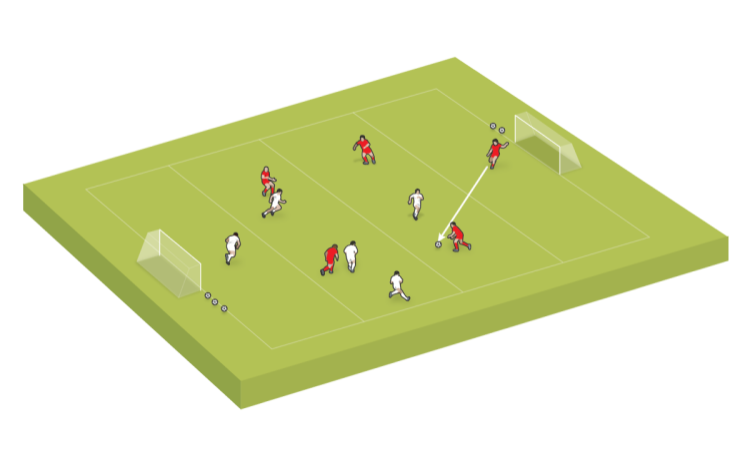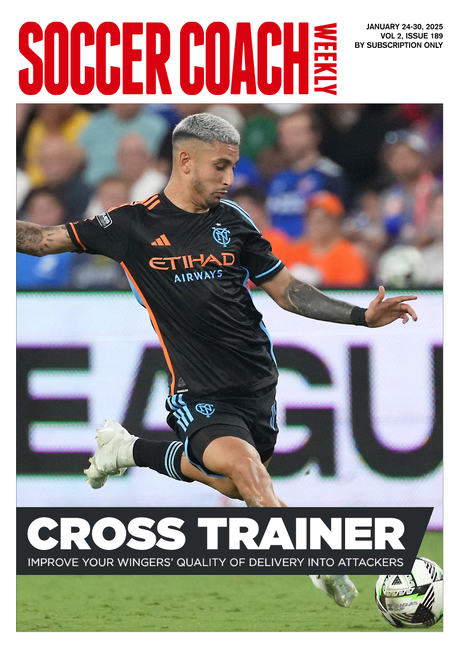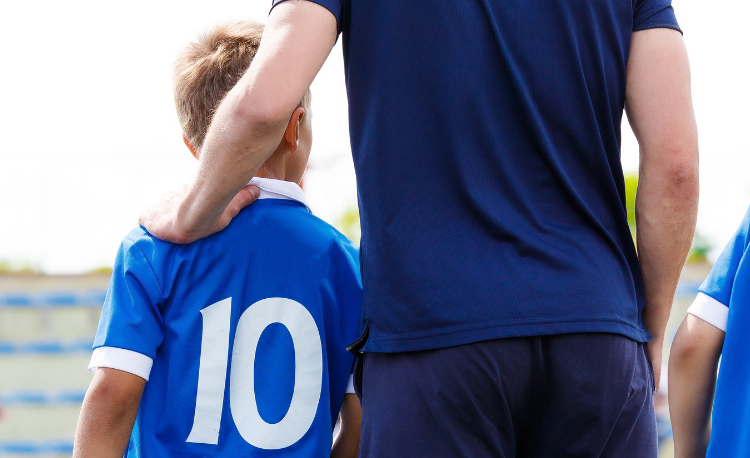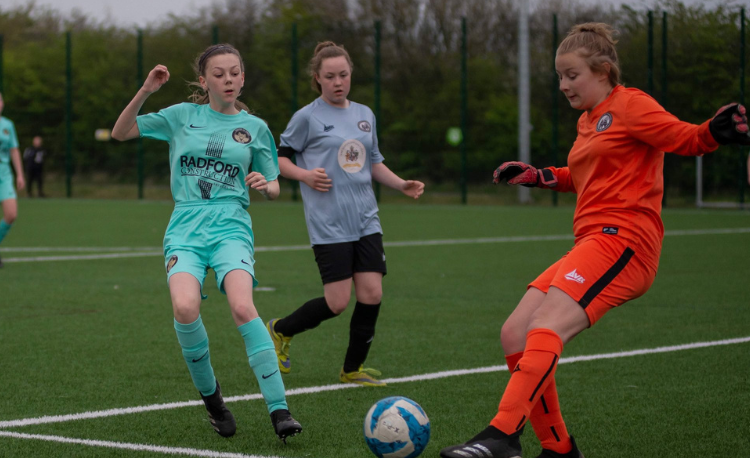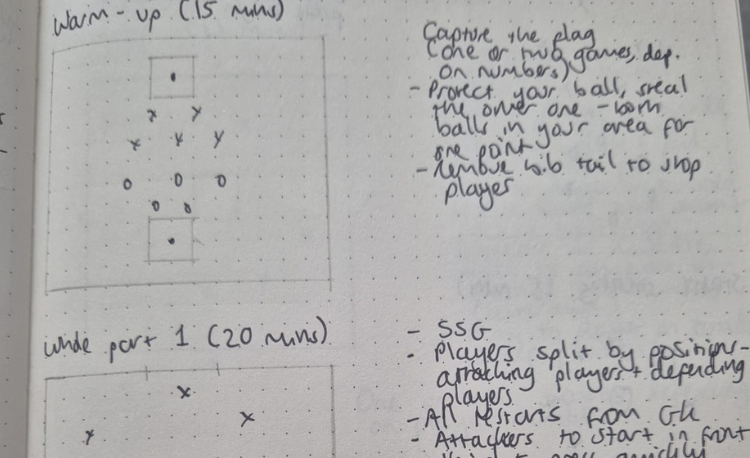Changing the mindset on defensive practices
Reward a positive attitude towards out of possession play, says James Tolley
Picture the scene. Your players are gathered round at the start of a session, and you say “today, we’re working on defending".
The response most give, rightly or wrongly, is “urgh” - and they start to switch off. The reaction we would prefer is one like John Stones and Ruben Dias in that Champions League game against PSG - celebrating every successful tackle with high fives.
So how can we alter the mindset of our players?
The first change we can make is to say we’re working out of possession, and on winning the ball. Already, this is more positive in the players’ minds - they are more likely to engage, as we can focus on the success of winning the ball, rather then potentially conceding chances.
It is also important to note we are not using defending as a negative, but as a chance to gain back possession and hit on the counter.
Secondly, I believe we have to change the way we reward defending within practices. Most commonly, out of possession sessions reward the player defending by allowing them to play in possession again.
While this is true within matches, I think we should reward successful defending with more defending.
What I mean by that is, rather than having a 1v1 where you rotate when you win the ball, try a 1v1 with a spare player, meaning there are three players involved.
When the defender wins the ball, they get to defend again against the third player. If they don’t win the ball, they don’t get to defend again - simple.
Alternatively, in something like a rondo, set an area for the players to play in. If the defender wins the ball, they have to try to break out of the area to remain a defender. If they win the ball and then lose it before breaking out, they have to rotate.
Again, while most players are used to this being the other way around, it is an essential change when we focus on defending, because being the defender is the reward, not the punishment.
With my own team, this has totally changed the mindset of out of possession work, making the players want to defend and win the ball back.
It means players value and encourage each other when they don’t have the ball, and have started to celebrate amazing challenges, great blocks and goal stopping.
"I think we should reward successful defending with even more defending..."
By simply changing the reward - and therefore the mindset of the players - we can teach the principles of out-of-possession work and make the sessions far more enjoyable.
But it is not only mindset that can be positively affected. Taking this approach allows for more repetitions within the competitive aspect of the game, which allows for even more success. It’s a win-win.
So I propose a challenge to everyone reading this. The next out of possession practice you use, make the reward more defending, and make defending enjoyable for your players.
Over-celebrate successful defending with high fives and cheers, and encourage teammates to do the same. Being successful at defending - be it blocking the ball, winning it back or forcing it another direction - should be celebrated by everyone as much as they would celebrate scoring a goal.
This mindset change will initially be strange, but if we can change the way we look at and celebrate defending, our players will notice our enthusiasm for it. They will then become just as enthusiastic about learning how to be a successful defender - which should equate to more clean sheets.
So go out there and change those mindsets!
Related Files
Newsletter Sign Up
Coaches Testimonials

Gerald Kearney, Downtown Las Vegas Soccer Club

Paul Butler, Florida, USA

Rick Shields, Springboro, USA

Tony Green, Pierrefonds Titans, Quebec, Canada
Subscribe Today
Discover the simple way to become a more effective, more successful soccer coach
In a recent survey 89% of subscribers said Soccer Coach Weekly makes them more confident, 91% said Soccer Coach Weekly makes them a more effective coach and 93% said Soccer Coach Weekly makes them more inspired.
*includes 3 coaching manuals
Get Weekly Inspiration
All the latest techniques and approaches
Soccer Coach Weekly offers proven and easy to use soccer drills, coaching sessions, practice plans, small-sided games, warm-ups, training tips and advice.
We've been at the cutting edge of soccer coaching since we launched in 2007, creating resources for the grassroots youth coach, following best practice from around the world and insights from the professional game.
